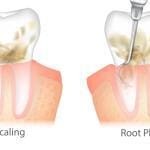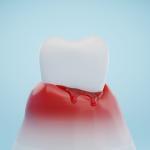Trench mouth, medically known as acute necrotizing ulcerative gingivitis (ANUG), is a severe form of gingivitis characterized by painful, bleeding gums and ulceration. While the condition earned its colloquial name during World War I due to its prevalence among soldiers living in unsanitary conditions in trenches, it can affect anyone. Trench mouth is not as common today as it once was, but understanding its causes, symptoms, and treatment remains essential for dental health professionals and the general public alike.
Understanding Trench Mouth
Trench mouth is a bacterial infection of the gums. Normally, the mouth contains a balanced ecosystem of bacteria, but when this balance is disrupted, harmful bacteria can proliferate, leading to infection. ANUG typically arises when certain risk factors are present, such as poor oral hygiene, stress, smoking, malnutrition, or a weakened immune system.
The condition is caused by a combination of bacteria, primarily Porphyromonas gingivalis, Prevotella intermedia, and Fusobacterium species. These bacteria thrive in an environment with limited oxygen, such as deep gum pockets or areas with poor blood supply, contributing to the characteristic ulceration and tissue destruction seen in trench mouth.
Trench Mouth Causes
- Poor Oral Hygiene
- Smoking
- Stress
- Malnutrition
- Weakened Immune System
Poor Oral Hygiene
Failure to brush and floss regularly allows plaque, a sticky film of bacteria, to accumulate on teeth and gums. This buildup can irritate the gums and lead to inflammation, providing an ideal environment for harmful bacteria to flourish.
Smoking
Tobacco use impairs blood flow to the gums, weakens the immune system, and hampers the body’s ability to fight off infections, making smokers more susceptible to trench mouth.
Stress
Chronic stress can compromise the immune system, making individuals more vulnerable to infections, including trench mouth.
Malnutrition
Inadequate intake of essential nutrients, particularly vitamin C, can weaken the immune system and impair gum health, increasing the risk of developing ANUG.
Weakened Immune System
Conditions such as HIV/AIDS, diabetes, and cancer, as well as certain medications that suppress the immune system, can predispose individuals to infections like trench mouth.
Symptoms of Trench Mouth
Trench mouth typically presents with a constellation of symptoms that can range from mild to severe:
- Painful Gums
- Bleeding Gums
- Ulceration
- Bad Breath
- Metallic Taste
- Gingival Pseudomembrane
- Fever and Malaise
Painful Gums
The gums may be swollen, tender, and painful, especially during brushing or eating.
Bleeding Gums
Gums may bleed spontaneously or during brushing and flossing.
Ulceration
The gums may develop ulcers or open sores, which can be painful and may have a grayish film covering them.
Bad Breath
Trench mouth is often accompanied by halitosis, or bad breath, due to the presence of bacteria in the mouth.
Metallic Taste
Some individuals with ANUG may experience a persistent metallic taste in their mouth.
Gingival Pseudomembrane
In severe cases, a grayish layer of dead tissue may form on the gums, known as a gingival pseudomembrane.
Fever and Malaise
In more severe cases, individuals may experience fever, fatigue, and overall malaise.
Diagnosis
Diagnosing trench mouth typically involves a thorough examination of the oral cavity by a dental professional. The presence of characteristic symptoms such as painful, bleeding gums, ulceration, and a foul odor may raise suspicion of ANUG. Additionally, a patient’s medical history, including risk factors such as poor oral hygiene, smoking, stress, or underlying medical conditions, may provide valuable clues.
In some cases, a sample of the affected tissue may be collected for laboratory analysis to identify the specific bacteria responsible for the infection. This can help guide treatment decisions, especially in cases where the infection is resistant to conventional therapies.
Trench Mouth Treatment
Treatment for trench mouth aims to control infection, alleviate symptoms, and promote gum healing. The approach may include the following:
- Improving Oral Hygiene
- Antibiotics
- Pain Management
- Gargling
- Nutritional Supplements
- Stress Management
- Quit Smoking
Improving Oral Hygiene
Thorough brushing and flossing, along with regular dental cleanings, can help remove plaque and bacteria from the teeth and gums, promoting healing and preventing recurrence.
Antibiotics
In cases of severe infection, oral or topical antibiotics may be prescribed to target the specific bacteria causing the infection. Commonly prescribed antibiotics include metronidazole, amoxicillin, or tetracycline.
Pain Management
Over-the-counter pain relievers such as ibuprofen or acetaminophen may be recommended to alleviate gum pain and discomfort.
Gargling
Antiseptic mouthwashes or saltwater rinses may help reduce bacteria in the mouth and soothe inflamed gums.
Nutritional Supplements
In cases of malnutrition or vitamin deficiencies, supplementation with vitamins and minerals, particularly vitamin C, may be beneficial for gum health and immune function.
Stress Management
Strategies to reduce stress, such as relaxation techniques or counseling, may help improve overall oral health and reduce the risk of recurrent infections.
Quit Smoking
For individuals who smoke, quitting smoking is crucial to improving gum health and reducing the risk of recurrent infections.
Prevention
Preventing trench mouth involves maintaining good oral hygiene practices and addressing risk factors that predispose individuals to the condition:
- Brush and Floss Regularly
- Regular Dental Checkups
- Healthy Lifestyle
- Manage Underlying Health Conditions
Brush and Floss Regularly
Brushing teeth twice a day and flossing daily helps remove plaque and bacteria from the teeth and gums, reducing the risk of infection.
Regular Dental Checkups
Routine dental visits for professional cleanings and examinations can help detect early signs of gum disease and prevent its progression to trench mouth.
Healthy Lifestyle
Eating a balanced diet, managing stress, getting regular exercise, and avoiding tobacco products can help support overall oral and systemic health.
Manage Underlying Health Conditions
Managing underlying medical conditions such as diabetes or HIV/AIDS and taking medications as prescribed can help reduce the risk of developing trench mouth.
Conclusion
Trench mouth, though less common today, remains a significant oral health concern characterized by painful gums, bleeding, and ulceration. Understanding the causes, symptoms, and treatment options for ANUG is essential for dental health professionals and the general public alike. By practicing good oral hygiene, addressing risk factors, and seeking timely treatment, individuals can reduce the risk of developing trench mouth and maintain optimal oral health for years to come.





